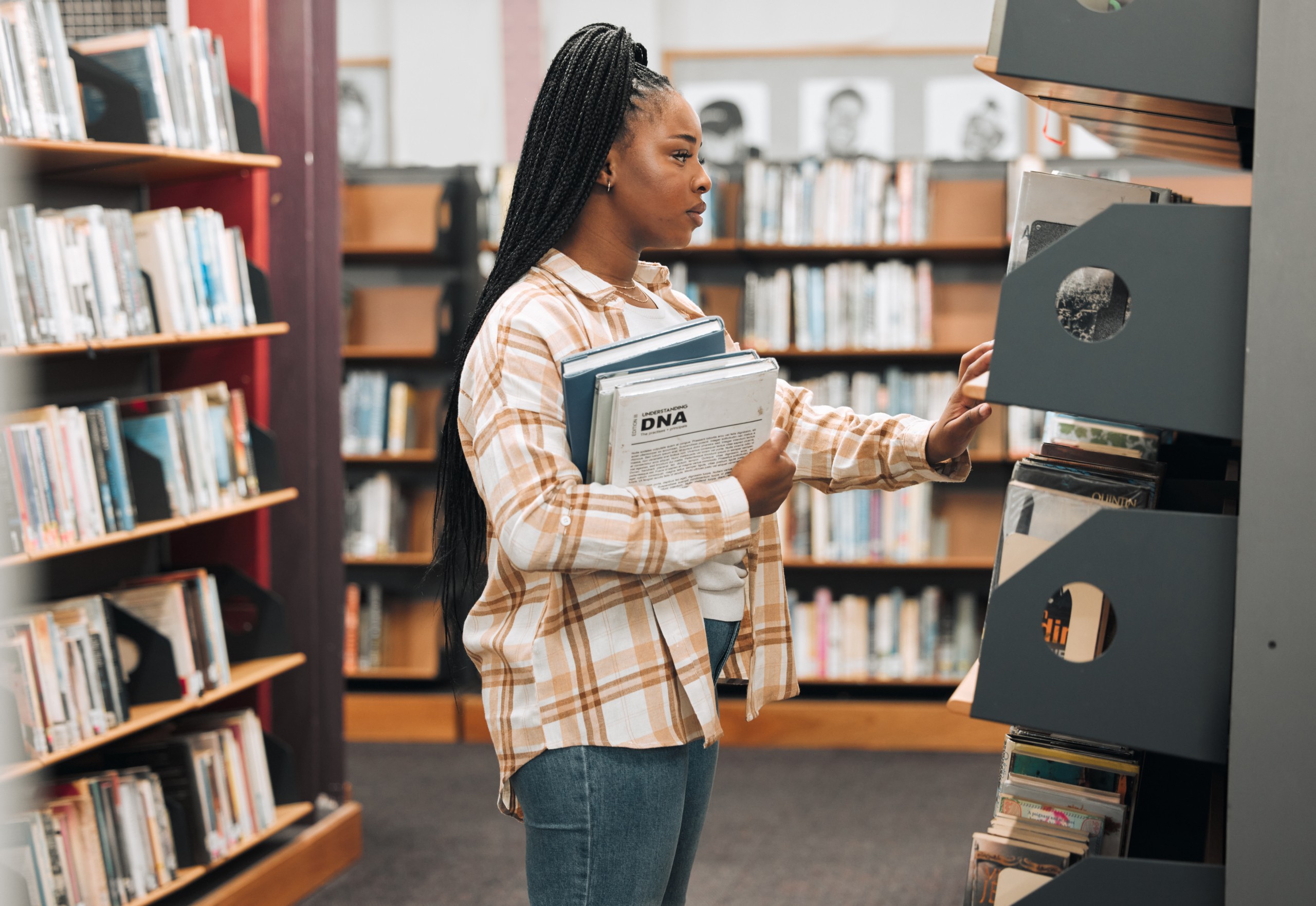How to save money as a student: 11 Money Saving Tips
Written by: Helene Ausserwöger, 23.01.2025
During your studies, time to earn money is often limited, and many jobs are only modestly paid. Temporary jobs can help, but the budget remains tight – being “short on cash” is just part of student life.
That’s why it pays off to follow some smart ideas and easy-to-implement tips that will help you start into a more frugal lifestyle. It gives you financial independence and allows you to save up for bigger investments or important future endeavours. Remember to take time for moments of enjoyment – after all, it’s important to prioritise spending on what truly matters to you. With our numerous tips, we’ll show you how you can save in everyday life without having to make big sacrifices.
Everyday Saving Tips: Saving Money as a Student
Saving money in everyday life is often easier than it seems at first glance, especially as a student. This phase of life offers many opportunities to cut costs without constantly having to make sacrifices. Whether it’s rent, groceries, or leisure activities, a few simple tricks can help you cut costs while still making the most of your student life.
Reduce Fixed Costs
As a student, you can significantly lower your fixed costs with simple measures. With a bit of planning and the right tricks, you’ll not only save money but also help the environment.
Affordable Housing
Housing costs are often one of the biggest financial burdens for students. However, there are ways to reduce these expenses significantly:
- Shared apartments: Living in a shared flat allows you to split rent and utility costs with roommates, considerably reducing your monthly expenses.
- Student dormitories: STUWO student dorms are an excellent option. Their all-inclusive rents cover utilities such as electricity, heating, water, operating costs, and internet. Dormitories often include furnished rooms and extras like gyms, study areas, or shared kitchens – perfect for study and leisure.
Save on Electricity and Water
At home, there are many ways to lower your electricity bills and save water. Even small changes in your behaviour can already make a big difference.
Kitchen
- Defrost freezers regularly: This saves energy and ensures your appliances remain efficient.
- Boil water in a kettle: Only use as much water as you need
- Preheat the oven only when necessary – and use the oven or stovetop’s residual heat.
- Use lids: Cook with lids on pots and pans to save energy.
Bathroom
- Shorter showers: Reduce water consumption by shortening shower times.
- Water-saving showerheads: Invest in showerheads designed to use less water with the same comfort.
Electrical Devices
- LED bulbs: They use less energy and last longer than traditional bulbs.
- Eco-programs: Use eco settings on washing machines and dishwashers to save water and electricity.
- Air-dry laundry: Use a drying rack instead of a dryer.
- Turn devices off completely: Avoid standby mode and switch devices off entirely.
- Energy-efficient appliances: When buying new devices, look for good energy ratings (at least A+).
- Fan vs. air conditioner: On hot days, a fan consumes far less electricity than an air conditioner.
Additionally, compare your electricity and gas providers regularly. Platforms like durchblicker.at can help you find cheaper tariffs.
You can find more tips on how to save energy here.
Make smart choices - it’s good for your finances and great for our environment! ©Adobe Stock
Make smart choices - it’s good for your finances and great for our environment! ©Adobe Stock
Lower Heating Costs
Heating bills tend to rise during colder months, but these tips can keep your home warm without increasing your costs:
- Ventilate properly: Ventilate rooms by opening windows fully for a few minutes rather than leaving them ajar. This saves energy and ensures fresh air.
- Keep radiators clear: Avoid blocking radiators with furniture or curtains to distribute heat efficiently.
- Adjust temperatures: Heat only the rooms you actively use and keep doors to unused rooms closed. In the kitchen, you can use the residual heat from your oven after cooking.
- Vent radiators: If your radiator makes noises or doesn’t heat properly, it’s time to vent it. Air in the system reduces efficiency and increases costs.
- Use rugs – they store warmth, add cosiness, and keep your feet warm.
Stay Mobile on a Budget
Transport can be expensive, but there are numerous budget-friendly options for students:
- Discounted public transport tickets: Many transit operators offer cheaper tickets for students under 26, which are often supported by grants from the cities or municipalities.
- Climate ticket: If you frequently travel between federal states, the Climate Ticket might be the perfect option for you. It allows unlimited use of public transport across all of Austria.
- Bicycle instead of car: Especially in cities, bicycles save money, avoid traffic, and keep you fit.
- Car sharing: Instead of getting your own car, use car-sharing services like Free2move.
- Carpooling: Use carpooling to reach your destination affordably and conveniently. Whether through university acquaintances or platforms like Blablacar, you can often travel at very low costs while also making new connections. This way, you not only save money but also travel in a more environmentally friendly way.
Avoid or Reclaim High Rental Costs
Rent is often the biggest financial burden for students. However, there are several types of support and strategies to reduce your housing expenses or even receive refunds.
Apply for Housing Assistance
In Austria, students with a certain minimum income can apply for housing assistance. Here you can check the specific requirements in your federal state to see if you qualify.
Use Rental Rights Advice
In older buildings, Austria has legal limits on rent prices. Platforms like Mietheld or Miete Runter can review your rent and, for a commission on successful claims, determine if you are overpaying. If so, you can get a refund on excessive rent payments.
Sublet Your Accommodation
If you’re away for an extended period, such as during an internship or semester break, you might be able to sublet your accommodation and save on costs. Important: Always check your rental contract beforehand to ensure you are allowed to sublet and avoid legal issues.
University libraries also have a truly unique vibe! ©Adobe Stock
Minimise Study Material Expenses
Study materials can be expensive, but with a few smart tips, you can save money without having to sacrifice what’s important.
Second-hand over New
You often only need textbooks and notes for one or two semesters, so why buy them new? Check out platforms like the ÖH book exchange of your university for affordable study materials. Many students also use university groups or online forums to resell their materials at low prices.
Another option: ask your classmates if they can lend or sell you their materials at a lower price.
Take Advantage of Libraries
City and university libraries are real treasure troves for students. As a student, you can borrow books for free and access academic journals as well as digital resources.
Free Digital Alternatives
Many online databases offer free access to study materials, including:
- Zeno.org: Access to a wide range of classical texts and works.
- OpenStax: Free textbooks across various disciplines.
- ResearchGate: A platform where researchers share their work, perfect for finding academic articles and studies.
University libraries also have a truly unique vibe! ©Adobe Stock
Compare Prices to Save More
As a student, comparing prices can save you a lot of money. Platforms like willhaben.at, Geizhals.at, or idealo make it easy to find the best deals on a wide range of products, from electronics and furniture to books and household items.
Keep an eye out for special events like Black Friday, student weeks, or local discounts. Many stores and platforms offer attractive deals specifically for students – more on that in the next section. Important: Only buy what you truly need – impulse purchases, even if they seem like bargains, can end up costing you more in the long run!
Make the Most of Student Discounts and Perks
Luckily, there are plenty of discounts and deals for students that let you save money without giving up on the things you love. From tech to culture, here’s how to make the most of your student status:
Tech and Software Discounts
Students enjoy exclusive deals from major tech companies:
- Apple: Discounts on laptops, tablets, and accessories for students.
- Microsoft: Free or heavily discounted Office packages through Microsoft Education.
- Adobe: Creative minds can access tools like Photoshop and Premiere at special student rates with the Creative Cloud subscription.
Culture and Leisure
Freetime activities don’t have to be expensive! Many museums, theatres, and cinemas offer special student rates – or even free admission days.
- Oper Graz: Last-minute tickets for 8€ (students up to 27) or 1€ tickets for first-semester students.
- USI Courses: Universities often provide affordable sports courses – whether you’re into Pilates, climbing, or even archery, there’s something for everyone.
- Gyms and Swimming pools: Many offer special student rates – always worth asking!
Online Shopping and Deals
- ISIC or u:book: Platforms that offer exclusive discounts on brand-name products, clothing, and electronics.
- iamstudent: This Austrian platform regularly lists attractive deals, from shopping vouchers to culinary highlights.
Important: Keep an eye on age limits!
In Austria, many student discounts are only available to those under 27 and require a valid student ID. Make sure to check the conditions beforehand to see which benefits you can take advantage of.
Save on Food and Leisure Activities
Amid the occasional university stress, don’t forget to fully enjoy your student life. Here are some tips to stay well-fed and make the most of your free time – even on a tight budget.
Smart Grocery Shopping
- Visit farmers’ markets for fresh, local products at lower prices.
- Take advantage of discounts and opt for store brands to save money.
- Avoid food waste by using leftovers – plan your meals ahead of time.
Budget-Friendly Restaurants
- Try the “Pay what you can” concept at Wiener Deewan.
- Enjoy affordable menus at aai Mensa/Café Africa (starter, main course, and dessert for about €6).
- Check out university cafeterias, which usually offer daily changing menus at reasonable prices.
- Use the app TooGoodToGo to buy leftover food from restaurants or bakeries at discounted prices just before closing time.
STUWO Tip: Reserve a table via TheFork.at and get up to 30% off your restaurant bill – perfect for enjoying fine dining at fair prices!
Free Activities and Events
- In summer, don’t miss out on open-air cinemas – some are free or very affordable and provide a unique vibe, like the film festival at Vienna’s Rathausplatz.
- Take advantage of free music events in Vienna, such as the classic Donauinselfest.
- Many museums in Vienna offer free entry on the first Sunday of each month, including the Wien Museum Karlsplatz, Römermuseum, and Wien Museum Hermesvilla.
- Host cooking and crafting nights with friends – it’s fun, and everyone can contribute something, saving money while creating great memories.
Leverage Student Benefits & Plan Smartly
With smart planning and knowledge of your options, you can secure your finances throughout your studies. Here’s an overview of funding opportunities, budgeting tips, and key points for handling taxes as a student.
Financial Management and Support for Students
There are many opportunities provided by universities and the state:
- Study Grants: Austrian students can apply for study grants. The amount you’re eligible for depends on your income and your parents’ financial situation. Even if you’re unsure about your eligibility, it’s worth submitting an application!
- Scholarships: In addition to study grants, there are numerous scholarships that can make your academic journey easier. Websites like stipendium.at can help you find the right scholarship for your needs – be it a merit-based scholarship, mobility scholarship, or graduation scholarship.
- Social Fund of the ÖH: If you face financial difficulties, the Austrian Students’ Union (ÖH) offers support through its Social Fund. These one-off payments can help cover unexpected costs, such as rent hikes, medical bills, or other financial challenges during your studies.
For more details on all the funding options available to you, check here.
Get Money Back Through Tax Refunds
Did you know that as a student with a part-time job, you can get money back through a tax return? The Employee Tax Assessment (ANV) allows you to recover part of the taxes you’ve paid, or even receive what is called the Negative Tax.
If you work alongside your studies, you can claim various expenses on your taxes, such as:
- Study Costs: Fees, textbooks, and scripts.
- Work Equipment: Computers, accessories, and more.
- Travel Costs: To your workplace or university.
If your annual income is below €12,000, you don’t have to pay income tax. However, if you’ve made social security contributions, you can get up to 50% of these contributions back through the Negative Tax.
For more detailed information, check out our blog post on tax tips!
Create an Effective Money-Saving Plan for Students
As a student, the key to saving money is proper budget planning. Here are the best methods:
Divide your income into three categories:
- 50% for fixed costs: Rent, heating, electricity, mobile phone contract.
- 30% for leisure: Dining out, cinema, hobbies.
- 20% for savings: Reserve funds for emergencies or large purchases.
Additionally, you should keep a household book or use apps to track all your expenses – this helps you stay on top of where your money is going. Good apps like Splitwise or Mint automatically show you where your money is spent and where you can cut back.
Choosing the Right Student Bank Account
For managing your finances, you’ll need a bank account. Many banks offer free solutions for students, including online banking, account management, and a debit card. For instance, Raiffeisenbank offers a free accident insurance policy for students up to the age of 24.
Other banks, like ERSTE, offer a free credit card until your 27th birthday. Check out a comparison of various providers to find the best fit for you here!
Another tip: Many banks offer referral bonuses, so talk to your fellow students if you’re considering switching banks.
Save Money Long-Term During Your Studies
Not only short-term savings help you through your studies, but preparing adequately for the time after graduation can also bring you long-term financial benefits. With the right saving tips, you can already start saving now for a successful and cost-efficient career start.
Stay committed, and nothing will stand between you and your dream career! ©Adobe Stock
Prepare for Your Career: Internships and Networking
The first step toward your career begins during your studies. Here are some tips to help you be well-prepared
Finding Internships
Internships are the perfect opportunity to gain practical experience – ideally, paid ones. Luckily, many companies offer paid internships, which not only provide insight into the professional world but also offer some financial support.
STUWO Tip: Check platforms like absolventen.at or your university’s career pages to find suitable job offers.
Networking
Build connections that can benefit you! Attend networking events, career fairs, and workshops to meet potential employers. Many universities also organize subject-specific events that can make getting started easier. For more networking tips, visit our networking blog.
Career Advantages with Additional Qualifications
Use your time at university to further your education:
- Certification courses in fields like languages, IT, or project management can make a significant difference later on.
- Study abroad semesters or internships are also great ways to expand your experience. You can find more information on study abroad opportunities here!
Stay committed, and nothing will stand between you and your dream career! ©Adobe Stock
Insurance for Students: What You Really Need
As a student in Austria, it’s important to have the right insurance coverage to ensure financial security. Here are some key points to consider:
Health Insurance:
- Coverage through parents: As a student, you can be covered under your parents’ health insurance until the age of 27 at no cost.
- Self-insurance for students: If you cannot be covered through your parents, you can opt for student self-insurance, which costs 73.48€ per month (2025).
- Self-insurance with a part-time job: If you’re employed in a minor capacity, you can self-insure for 77.81€ per month, which is important if you don’t have other health coverage.
The right insurance for you depends on your specific needs – more information can be found at the Arbeiterkammer!
Liability and Accident Insurance:
Liability insurance is essential, as it covers damages you might accidentally cause to others. Many students are already covered through their parents’ household insurance, so it’s worth checking existing policies before purchasing additional coverage.
Regarding accident insurance: students are covered for accidents during university-related events through social insurance. However, for accidents in your free time, private accident insurance can be useful, but again, check if you’re already covered under existing contracts or student accounts.
This way, you can avoid duplicate coverage and unnecessary costs!
Smart Saving: Make the Most of Your Student Life
Saving during your studies doesn’t mean sacrificing things, but rather making conscious decisions. With a solid budget plan, you can avoid unnecessary last-minute expenses and save in the long run. At the same time, you should also invest in your student life – whether it’s for travel, cultural events, or further education.
A long-term mindset is key: every small amount you save is part of a bigger picture. Use simple savings tips – compare prices, take advantage of student discounts, and live energy-efficiently.
Saving can be fun – whether it’s for the next big trip, a special goal, or simply more financial freedom in everyday life.








